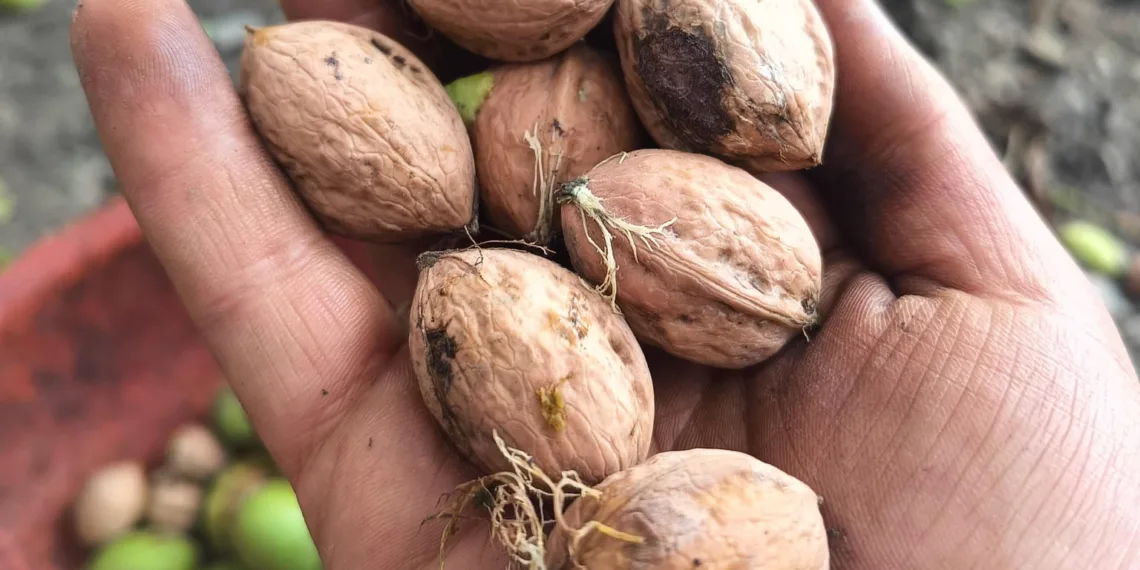Srinagar, Sept 18 (JKNS): Walnuts, locally known as Akhrot, have been the pride of Kashmir for centuries, grown in the valley’s cool climate and fertile soils.
Among the many prized varieties, the Kagzi (paper-shelled) stands tallest—famed for its thin shell, rich taste, and medicinal value. Karnah walnuts, particularly Kagzi, enjoy a special reputation as some of the most premium and expensive varieties, valued across India and abroad.
Other traditional types such as Wonth and Burzil add to the diversity, while the English walnut (Juglans regia) dominates local orchards for its easy-to-crack shells and aromatic kernels.
Walnut farming is not just an agricultural practice in Kashmir, but a way of life. Generations of farmers have depended on this seasonal crop to run households, pay for children’s education, and meet daily needs. Districts like Kupwara, Shopian, Anantnag, Baramulla, and Karnah are known as the walnut belts of the valley, with Karnah walnuts holding a distinct fame for their superior Kagzi shells.
Speaking to Shafaqat Saleem Parry, a trader deeply involved in the walnut business, he recalled the struggles of recent years.
“Our premium quality Kagzi walnuts were sold at only ₹400 per kg last year, and kernels at low rates, despite being among the best in the world. We worked hard, paid labor, and managed processing, but one whole season’s earnings were not enough.
This year, we hope the price reaches at least ₹1200 per kg for kernels and ₹500-600 for Kagzi walnuts. Our homes run on this business without fair rates, our survival is at stake.”
Analysts now predict better times ahead. In 2025, walnut prices are expected to rise by 15–20 percent due to high global demand and reduced U.S. imports, giving fresh hope to valley farmers. Government initiatives under the Mission for Integrated Development of Horticulture (MIDH), GI branding, and high-density plantation training are also helping boost production and market value.
Beyond economics, Kashmiri walnuts hold medicinal and nutritional importance. Rich in omega-3 fatty acids, antioxidants, and compounds that strengthen the brain, heart, and immune system, walnuts are used in traditional medicine, modern pharmaceuticals, and dietary supplements. The composition of walnut oil and kernels makes them highly sought after in both food and medicine industries worldwide.
With health-conscious consumers driving up demand, and Karnah’s Kagzi walnut enjoying unmatched prestige, experts believe Kashmiri walnuts are on the brink of becoming not just a local treasure, but a global luxury brand—bringing prosperity to thousands of hardworking farmers while nourishing millions with nature’s best gift. (JKNS)


